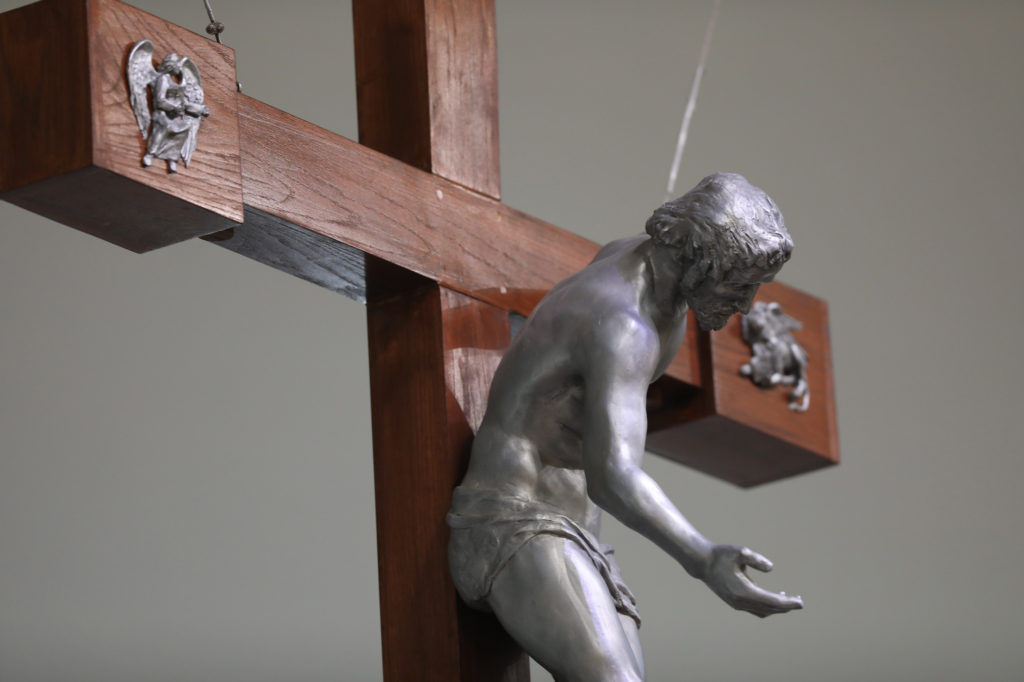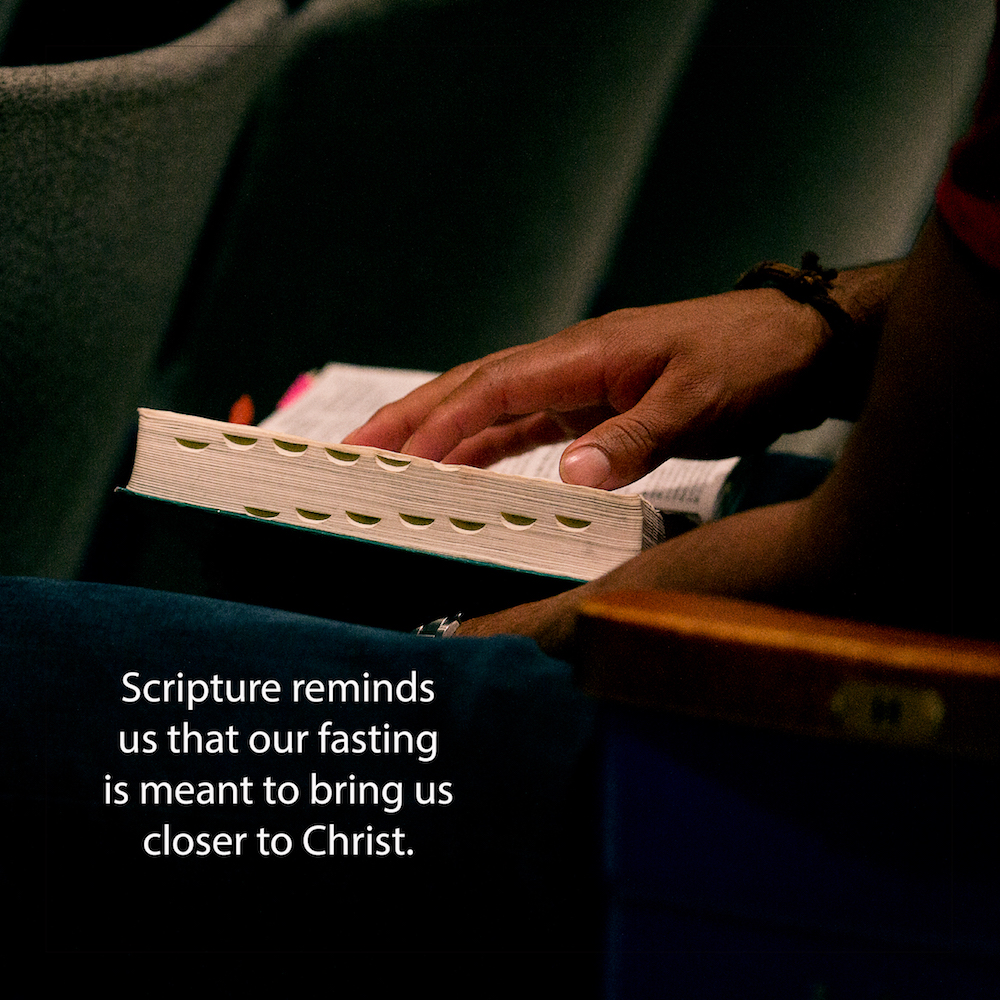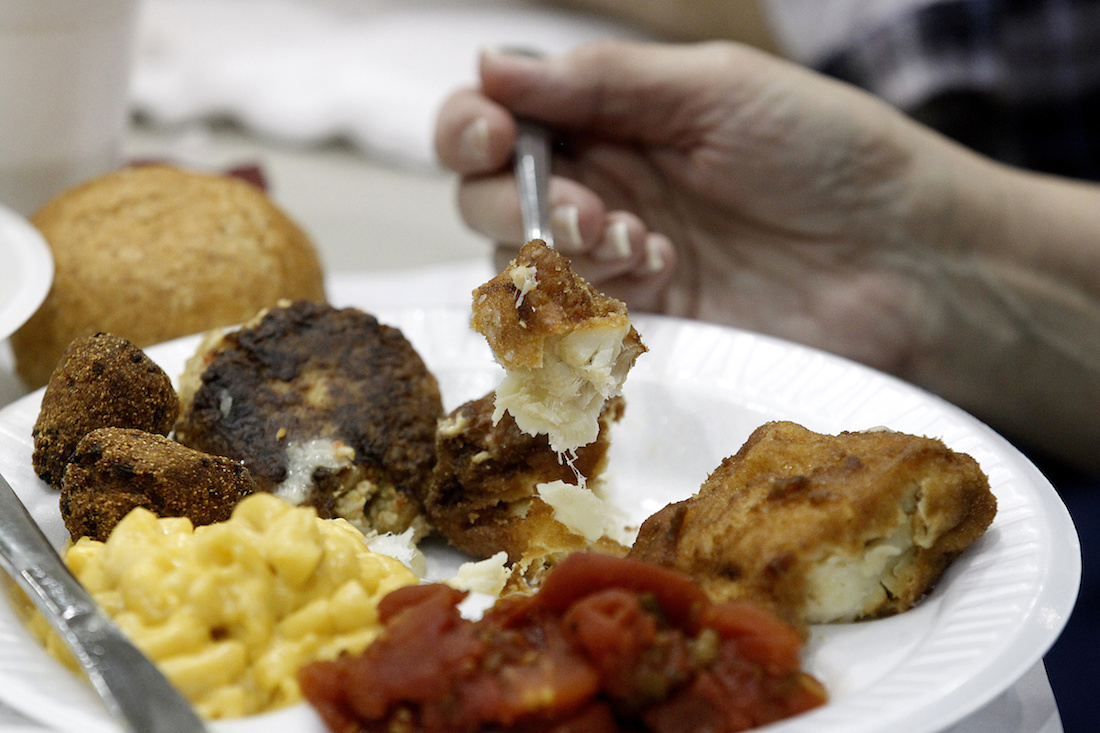Each year in the days before Lent, my husband and I share a list of what we plan to give up that year. Last year, it took just a few moments for him to start to rattle off an exhaustive list of goals.
Once I chimed in with my own long list of things I was giving up, I started to feel overwhelmed by all we had committed to … and Lent was still days away! Matt must have felt it too, because after a few minutes he said, “Wow, it kind of seems like we are doing a lot.”
So, we decided to take a step back and think about the intentionality behind what we were planning to “give up.” In my mind, we needed to answer two questions:

- First, did all of our spiritual problems have to be solved this one 40-day season?
If quality is really better than quantity, we wanted to make sure we weren’t setting ourselves up for failure by trying to take on, or give up, too much. - And second — perhaps more important — were we “giving things up” to grow closer to Christ?
If my motivation for giving up sweets is to kickstart weight loss, why wait until Lent to start? Was I giving up television to spend more time reading the Bible or praying? What was my spiritual motivation behind any list item?
In Matthew 9:15, John’s disciples ask Jesus why the Pharisees fast when Jesus’s disciples do not. He answers them: “The days will come when the bridegroom is taken away from them, and then they will fast.”
Well, those days have arrived! As Catholics, we undertake the Lenten practices of prayer, fasting and almsgiving seeking spiritual conversion as we journey to the cross with Christ.
“Giving something up” for Lent is an act of penance and sacrifice that reminds us of Christ’s sacrifices for us, which were obviously much greater than foregoing that ice cream in the freezer.
Scripture reminds us that our fasting is meant to bring us closer to Christ.
On the Third Sunday of Lent, we read:
“Meanwhile, the disciples urged him, ‘Rabbi, eat.’ But he said to them, ‘I have food to eat of which you do not know.’ So the disciples said to one another, ‘Could someone have brought him something to eat?’ Jesus said to them, ‘My food is to do the will of the one who sent me and to finish his work. Do you not say, “In four months the harvest will be here?” I tell you, look up and see the fields ripe for the harvest. The reaper is already receiving payment and gathering crops for eternal life'” (Jn 4: 31-37).
Jn 4:31-37
Jesus clearly reminds his disciples that the food of the earth is not what he desires. Jesus is in search of a greater source of nourishment, the bread of eternal life.
It’s not too late to be reminded of this during the Lenten season. Perhaps if you’ve already given up those sweets or salty snacks, you can think about that decision in a spiritual way. Change your motivation from one of weight loss to casting away what does not bring spiritual nourishment and lead to eternal life.


As Scripture reminds us, fasting is not meant to be done with trumpets blaring for the world to see. We don’t have to “Keep up with the Joneses” and do all that we think we’re supposed to do as “good” Catholics, and tell our friends about it.
We make the choice that’s right for us, for our spiritual journey in the Lent we find ourselves. Maybe, the next year, the choice will be different.
As far as this pair of Joneses is concerned, we are seeking to stay focused (and not just on ourselves), be mindful of our intentions and take on fewer things with greater focus on the Lord as we await the coming of the bridegroom on Easter morning.
— By Anna Jones, Catholic News Service. Jones is a freelance writer.






